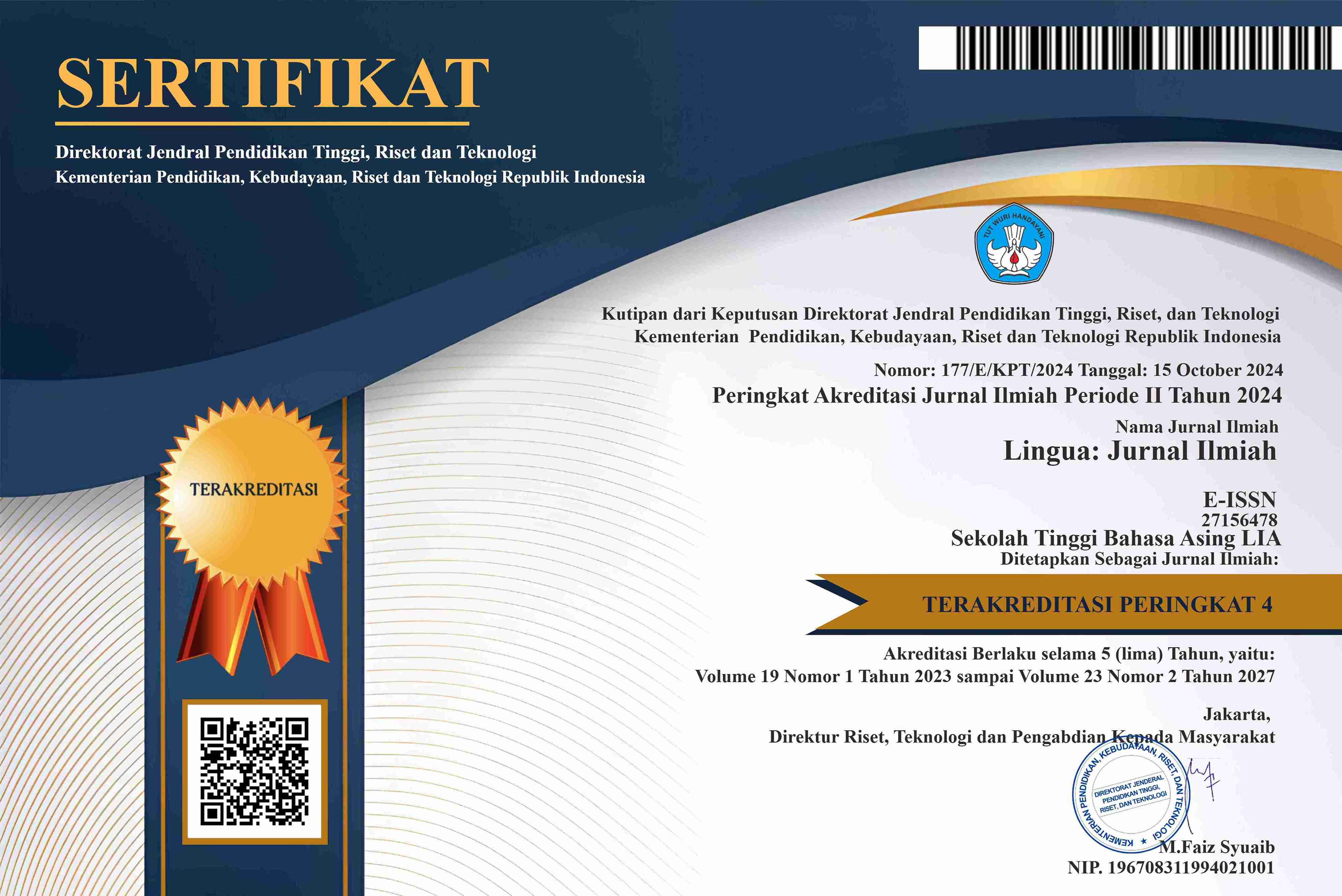Studi gastronomi: Nuru cuing sebagai warisan kuliner Manggarai
DOI:
https://doi.org/10.35962/lingua.v21i1.147Keywords:
studi gastronomi; , kuliner Manggarai;, nuru cuingAbstract
This study aims to explore the historical, cultural, geographical, and culinary dimensions of the traditional Manggarai cuisine, nuru cuing, as a cultural heritage of the Manggarai people. Employing a descriptive qualitative approach, the research examines nuru cuing within the framework of traditional gastronomy studies through four main aspects: history, culture, geographical landscape, and cooking methods. Data collection techniques include in-depth interviews with local culinary practitioners and direct field observations, particularly at The Kitchen Garden Restaurant in Labuan Bajo. Data analysis refers to the Miles and Huberman model, encompassing data reduction, data display, and conclusion drawing, with validation ensured through data and theoretical triangulation. The findings reveal that nuru cuing represents a form of local wisdom born out of adaptation to environmental conditions and technological limitations, embodying values of food efficiency, social solidarity, and distinctive processing techniques that remain flexible in the face of modern innovation.
Downloads
Published
How to Cite
Issue
Section
License
Copyright (c) 2025 Elisabet Oktaviani, Gracedelia J. Ngasa

This work is licensed under a Creative Commons Attribution-NonCommercial-NoDerivatives 4.0 International License.
















